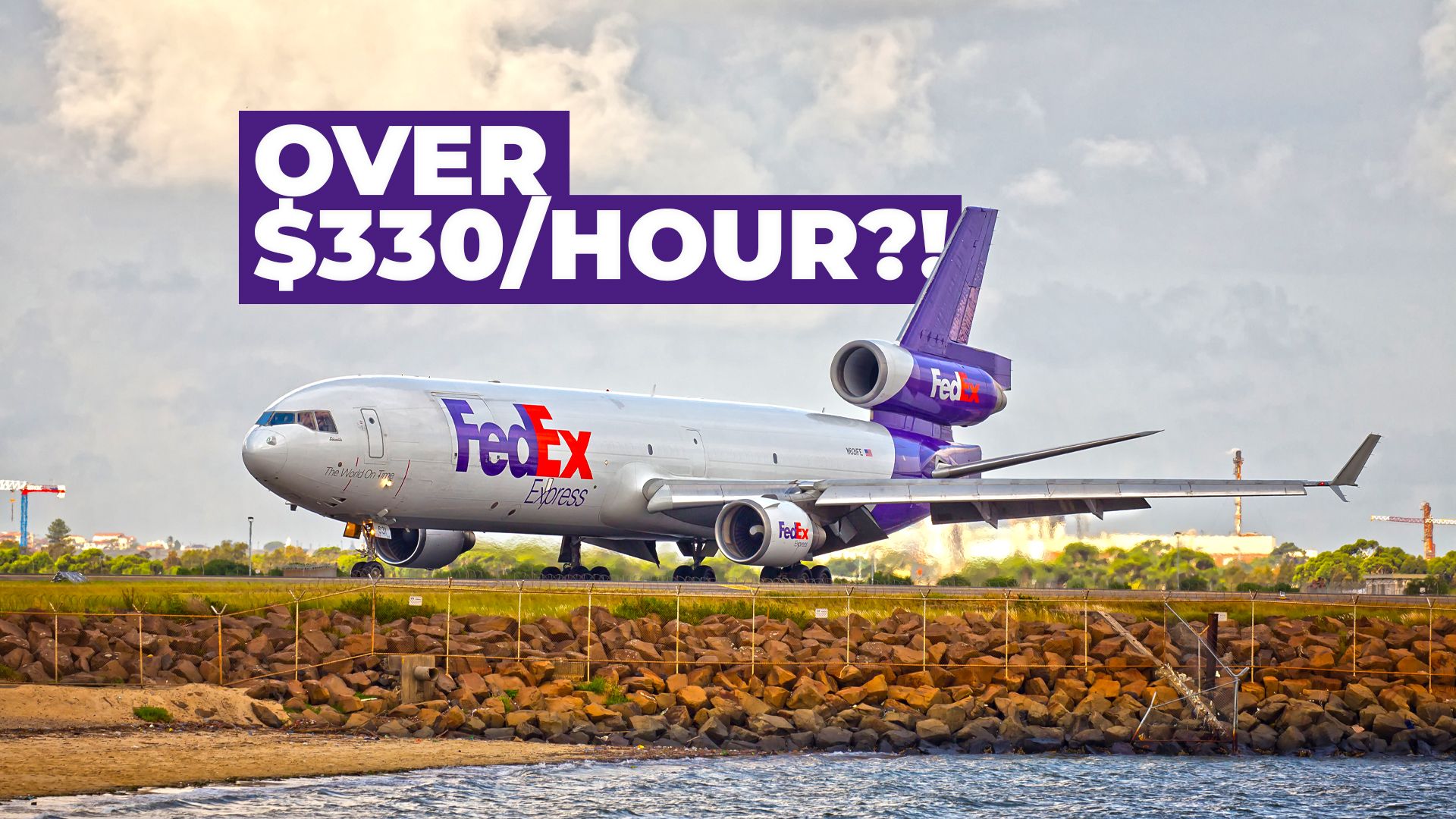FedEx Express, the world’s largest cargo airline by fleet size, employs over 5,800 pilots and operates nearly 400 aircraft. As a significant player in the air cargo industry, the airline provides services to more than 375 destinations across six continents. The pilots at FedEx Express are unionized under the Air Line Pilots Association (ALPA), which negotiates contracts that cover pay, benefits, and working conditions. This article examines the salaries of FedEx Express pilots in 2025 and offers insights into the airline’s operational context.
Salary Structure for FedEx Pilots
According to data from ThrustFlight, the average annual salary for a FedEx Express pilot starts at approximately $80,000 and can exceed $200,000 for those with extensive flight experience. The basic salary for First Officers, based on a guaranteed minimum of 74 flight hours per month, is categorized by seniority as follows:
– Year 1: $77,760
– Year 2: $162,240
– Year 3: $197,760
For those promoted to the Captain rank, salaries increase significantly, detailed below:
– Year 1: $224,640
– Year 2: $253,440
– Year 3: $268,800
These figures do not include additional per diem payments or contributions to retirement plans, which can greatly enhance total compensation. Pilots who exceed the minimum flight hours can also see increased earnings.
Bonuses and Additional Compensation
In addition to their base salaries and retirement contributions, FedEx pilots benefit from various bonuses and incentives. Key components include:
– **Holiday bonus**: Up to 50% of monthly salary for working during peak seasons.
– **Profit sharing**: Up to 20% of annual salary based on company performance.
– **Overtime pay**: Time-and-a-half for hours over 80 hours monthly, double time over 90.
– **Delay pay**: 150% of hourly wage for delays exceeding two hours.
– **Trainer pay**: An additional 10% salary increase for training pilots.
– **International pay**: Bonuses of up to 20% for long-haul international flights.
– **Seniority pay**: 12% after 12 years, increasing to 15% after 15 years.
These bonuses can add an estimated $100,000 to the salary of an experienced captain, potentially raising their annual earnings to around $350,000.
Comparative Salary Analysis
When comparing FedEx Express to other cargo carriers, the airline offers some of the most competitive pay packages for pilots, particularly for those with seniority. UPS Airlines, a principal competitor, occasionally surpasses FedEx salaries; reports indicate that veteran captains there can earn upwards of $390,000. Pilots at independent cargo operators like Atlas Air and Kalitta generally earn less, averaging between $150,000 and $200,000. Conversely, pilots for Amazon Air receive significantly lower compensation, with captain salaries reported to be up to a third less than those at FedEx and UPS.
Operational Bases and Hiring Requirements
FedEx Express operates from several global pilot bases, with its headquarters at Memphis International Airport (MEM). Other bases include:
– **North America**: Los Angeles International Airport (LAX), Anchorage Ted Stevens International Airport (ANC), and Indianapolis International Airport (IND).
– **Asia**: Hong Kong International Airport (HKG).
– **Europe**: Cologne Bonn Airport (CGN).
To become a pilot at FedEx Express, candidates must hold a bachelor’s degree and have a minimum of 1,500 hours of fixed-wing flight time, preferably on jet aircraft. Regulatory requirements include holding an Airline Transport Pilot certificate and a current first-class medical certificate. Candidates must also pass a drug test and complete a Pilot Records Improvement Act evaluation. FedEx offers two pathways for aspiring pilots: military and commercial, with many former military pilots joining the ranks.
Overview of FedEx Express
Founded in 1971 in Memphis, Tennessee, FedEx Express has grown to become the largest cargo airline globally, operating over 380 aircraft. The airline is recognized for its overnight delivery services in the U.S. and international express services across six continents.
In recent years, FedEx Express has faced challenges, such as rising fuel costs and increased competition from rivals including DHL. The surge in demand for air cargo during the COVID-19 pandemic has somewhat subsided, yet the need for efficient delivery services remains high.
Sustainability is a priority for FedEx Express, which aims for carbon-neutral operations by 2040. The airline continues to invest in modernizing its fleet and adopting more fuel-efficient practices. Additionally, FedEx boasts a strong safety record, with only one fatal accident recorded in its operational history.
Overall, FedEx Express maintains its position as a leader in the air cargo industry, driven by competitive salaries that attract top-tier talent, operational efficiency, and a commitment to sustainability.
